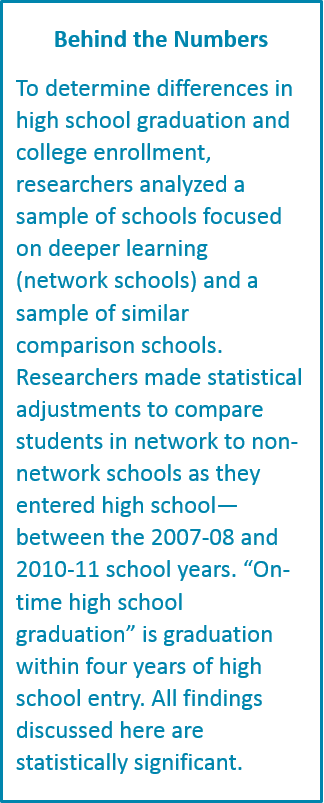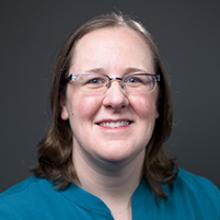Three Studies Show Impact of Deeper Learning
Today, success isn’t just about what you know. It’s also about how quickly you can grasp and apply new and ever-changing knowledge. That’s the key to 21st century learning.
And that’s the theory behind “deeper learning,” a broad term encompassing the goals of an increasing number of U.S. schools and school systems.
 In schools focused on deeper learning, students master core content knowledge and build the skills to communicate their ideas effectively, think creatively, work collaboratively, and manage their own learning.
In schools focused on deeper learning, students master core content knowledge and build the skills to communicate their ideas effectively, think creatively, work collaboratively, and manage their own learning.
Many deeper learning-focused schools use project-based learning and longer-term assessments (such as portfolios and exhibitions rather than just quizzes and tests) that help students solve problems and direct their own learning. To let students apply their classroom work to real-world situations, these schools may also use internships.
How does Deeper Learning affect student success?
Three recent AIR studies—one released last March, the other two released this month—studied relationships between deeper learning and student outcomes. All three were funded by the William and Flora Hewlett Foundation and focused on schools in New York and California with largely diverse and underserved populations.
The first, Graduation Advantage Persists for Students in Deeper Learning Network High Schools, looked at more than 20,000 students in 27 public schools. It found that students who entered the ninth grade in deeper learning-focused high schools (i.e., deeper learning “network schools”) had on-time graduation rates 8 percentage points higher than similar students who entered the ninth grade in comparison schools.
What about Deeper Learning led to those higher graduation rates?
A second study, Deeper Learning and High School Graduation: Is There a Relationship?, examined high school graduation records, student survey data, and test score data for 473 students who were in their third year of high school in 18 public schools, all from the original study. This second study further unpacked relationships among:
- Opportunities for deeper learning (e.g., collaborating with other students, monitoring and directing their own learning, receiving feedback from teachers and fellow students, connecting what they were learning to real-world experiences);
- Deeper learning competencies (e.g., complex problem-solving, communication and collaboration skills, and academic mindsets); and
- On-time high school graduation.
Findings suggest that exposure to a larger number of opportunities for deeper learning were related to higher levels of deeper learning competencies. These competencies were also positively related to on-time high school graduation.
The third study, Deeper Learning and College Attendance: What Happens After High School?, focused on more than 20,000 students in 25 network and comparison schools. This study found that students who entered the ninth grade in network schools were more likely to attend college than students who entered the ninth grade in similar comparison schools (53 percent compared to 50 percent). In particular, students who attended network schools were 4 percentage points more likely to attend four-year institutions (22 percent compared to 18 percent) and 2 percentage points more likely to attend selective four-year institutions (9 percent) than were similar students who attended comparison schools (7 percent). Selective institutions are four-year institutions where more than 80 percent of incoming freshmen are full-time students and where admissions test scores place the institution above the 40th percentile of postsecondary institutions.
Taken together, these three studies highlight the benefits of expanding instruction to include a focus on developing students’ interpersonal and self-management skills as well as academic content. While improved collaboration and communication skills, academic engagement, and perseverance are desirable outcomes in and of themselves, research shows that exposure to opportunities that develop these skills are positively related to student attainment.
As schools begin adapting practices to conform to the 2015 Every Student Succeeds Act, it is important to consider how focusing on the development of deeper learning skills can have far-reaching effects on student outcomes.
Kristina Zeiser is a senior researcher investigating how different high school organizational models affect students’ academic success.
Jordan Rickles is a principal researcher specializing in how educational practices and effectiveness differ across schools.
Mette Huberman is a senior researcher specializing in school and district reform.

